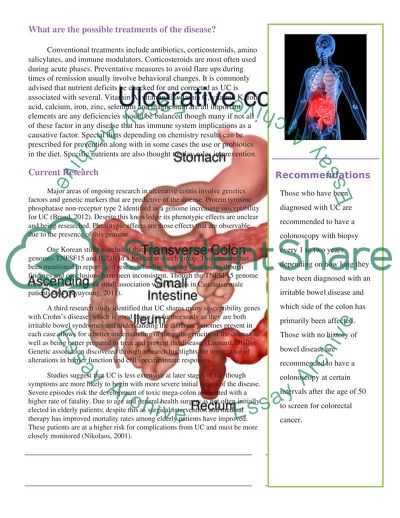What is Ulcerative Colitis Assignment Example | Topics and Well Written Essays - 750 words. https://studentshare.org/medical-science/1802401-ulcerative-colitis
What Is Ulcerative Colitis Assignment Example | Topics and Well Written Essays - 750 Words. https://studentshare.org/medical-science/1802401-ulcerative-colitis.


